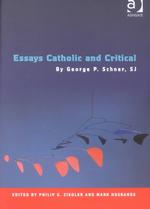- ホーム
- > 洋書
- > 英文書
- > Philosophy
Full Description
Offers a description of what happens to survivors after a death, based on the effect this death has on the survivor's relation to the spatial and temporal world occupied after the loss of the deceased.
A Death of the World offers a phenomenological description of what happens to the world for those who survive the death of someone. Bringing Jacques Derrida's works into conversation with the philosophies of Martin Heidegger, Emmanuel Levinas, Jean-Luc Marion, Maurice Blanchot, and Claude Romano; the poetry and literature of Paul Celan, W. H. Auden, Emily Dickinson, Ovid, and Jonathan Safran Foer; and psychological works concerning trauma, mourning, epigenetics, and memory, author Harris B. Bechtol provides interdisciplinary language for understanding the death of the other as an event. He argues that such death must be understood as an event because this death is more than just the loss of the other who has died insofar as the meaning of the world to and with this other is also lost. Such loss manifests itself through the transformations of both the spaces in which meaning takes place and the lived time of a survivor's world. These transformations of the world culminate in his account of workless mourning, which establishes the contours of the life after these deaths of the world.
Contents
Abbreviations
Preface
Introduction: The Question of Death, Event, and Survival
Part One — Symptoms of an Event
1. The Unexpected, Im-possible Event
2. The Secretive Event without Reason
3. The Transformative Event
Part Two — Spatial Transformations of the World
4. Unexpected Loss and Life: The Presence of the Other's Absence
5. Excess and the Death of the Other: Life/Death, Materiality, and Reason
Part Three — Temporal Transformations of the World
6. Memories and a Past That Won't Stay Put
7. Lost Possibilities and a Fractured Future
8. The Gift of Mourning in a Present Out of Joint
Conclusion: The Afterlife
Notes
Bibliography
Index








